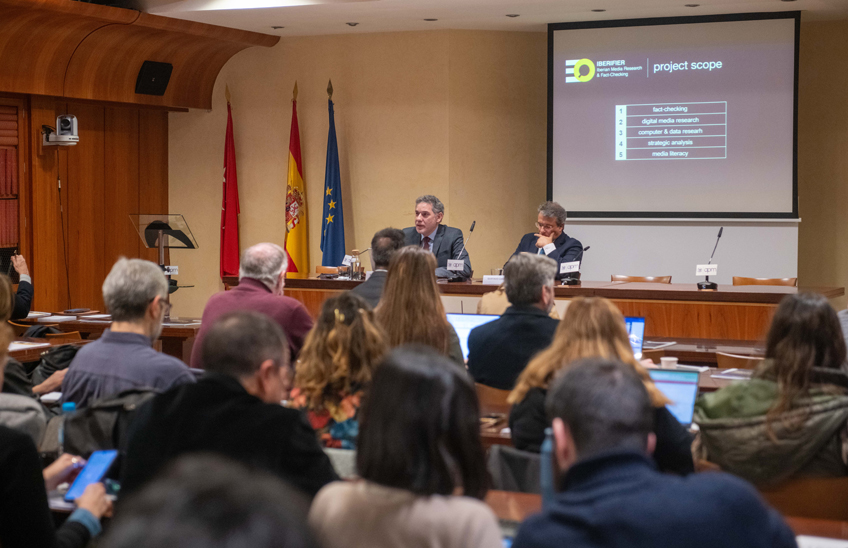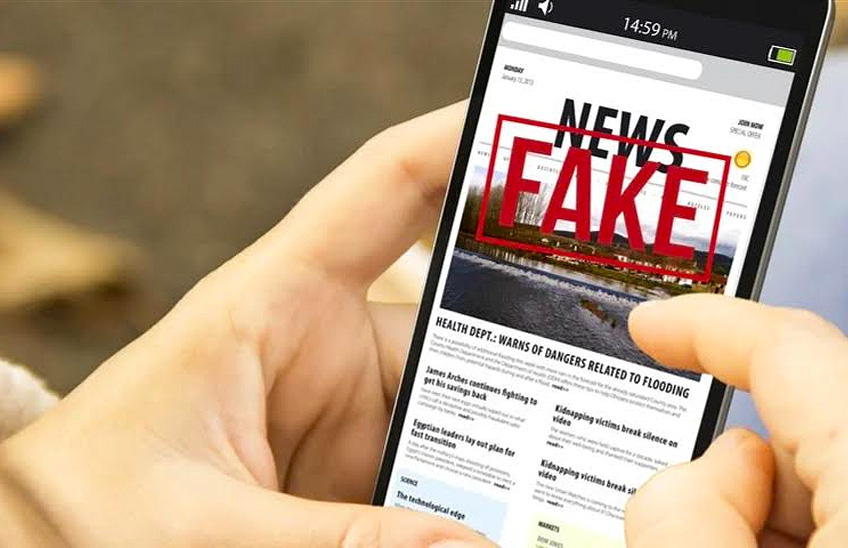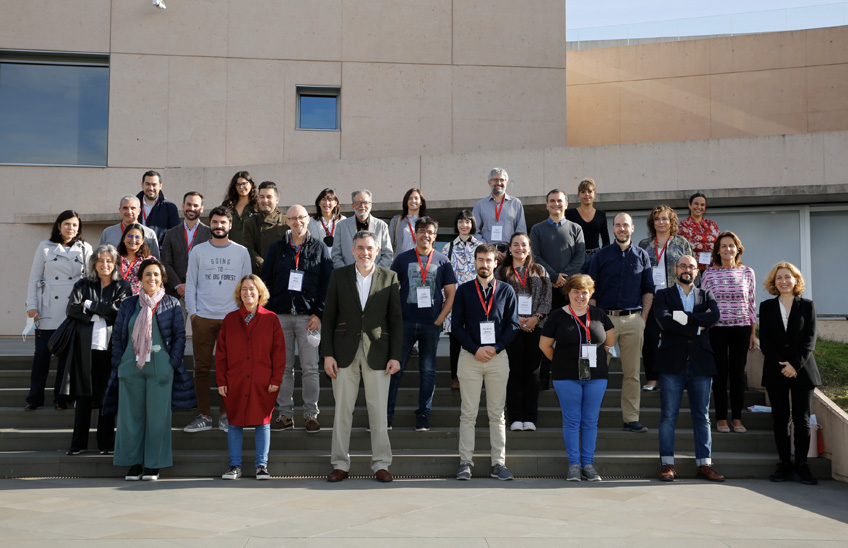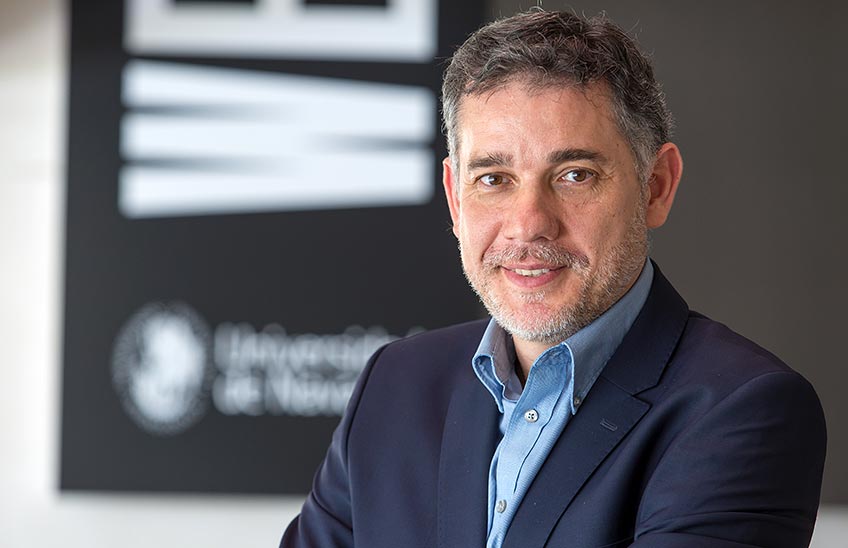"Disinformation strategies prior to an election are aimed at eroding the functioning of democracy."
The Iberian digital media observatory, Iberifier, coordinated by the University, has initiated its second stage of research
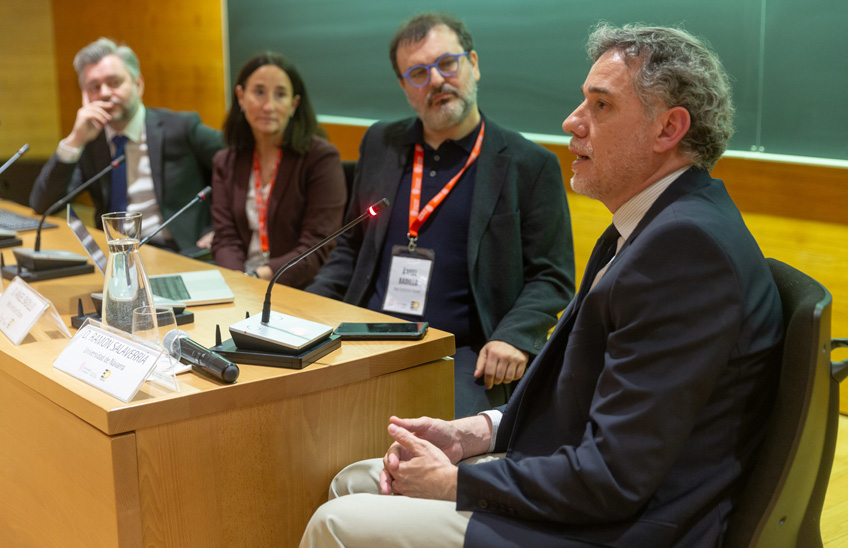
PhotoManuelCastells/From left to right, Sergio Hernández, coordinator of the EFE Verifica agency, the dean of the School de Comunicación, Charo Sádaba, the researcher of the Real Instituto Elcano, Ángel Badillo and the professor of the University of Navarra, Ramón Salaverría.
24 | 05 | 2024
Disinformation worries the European Commission, even more so in view of the upcoming elections to be held between 6 and 9 June, to which four hundred million people are called. What tools do we have to combat disinformation? What challenges do we face and what can the research centers and verification agencies do? These and other questions have been addressed in the roundtable "The impact of disinformation in the European elections", held during the conference with which the Iberian digital media observatory, Iberifiercoordinated by the University of Navarra, begins its second stage of research. The event was attended by the President of the Government of Navarra, María Chivite, attendance .
Moderated by Ramón Salaverría, professor at the University of Navarra and researcher principal of Iberifier, the forum was attended by Charo Sádaba, dean of School of Communication at the academic center; Ángel Badillo, researcher principal of the Real Instituto Elcano; and Sergio Hernández, coordinator of the verification agency EFE Verifica. The experts agreed that the 72 hours prior to an election are critical and that disinformation strategies seek to erode the functioning of democracy.
"The EU, which has in defense policies one of its main priorities at the present time, gives special importance to these elections and to combat disinformation strategies. The recent law on Digital Services or AI are test of this," said Sergio Hernandez. The coordinator of EFE Verifica has exposed different scenarios and narratives of disinformation in front of an election and has pointed out that the previous 72 hours are critical. "Procedures have been detected that create disinformation 'highways' through channels whose consumption will go to promote among the population and initiate a narrative to erode democracy, with the search for lower participation, casting of invalid votes, etc.".
"Citizens' decisions are conditioned by the information they receive just a few days before the elections. The false news circulating through the platforms can modify electoral behavior in just 48 and 72 hours", added Ángel Badillo, researcher of the Elcano Royal Institute.
Badillo has addressed the challenges we face and how to prevent against artificial intelligence tools used to generate hoaxes and fake news: from a manipulated video, a fake audio cut or the cloning of a media website. "The 'if I don't see it I don't believe it' is no longer valid. If with AI-created tools we cannot combat AI-generated disinformation we will have to verify the facts with other data and other sources," he said. "With AI a new world is created where what you see will not be a sufficient test . Journalists will remain important and media literacy remains core topic".
In this sense, Ramón Salaverría has mentioned that one of the main shields that civil society can have against disinformation is precisely the Education. "In terms of literacy, there is already little that can be done, given that the elections are in June. The Education requires time for the acquisition of competences, abilities and skills", said the dean of the Faculty of Communication, Charo Sádaba. She stated that in the face of disinformation prior to an election, "citizens are left in a vulnerable position. Especially those people who have not decided their vote" and advocated encouraging citizens to consume media and reliable sources of information.
Charo Sádaba also pointed out the need to "tone down" electoral campaigns. "Media literacy has to have its share of critical thinking, of healthy distance from what I am listening to or what I am seeing, but with care so as not to generate a total lack of trust in the media. It is a complicated balance, which requires a lot of restraint and I don't know if we are ready to face this now as a society", he concluded.
Researching disinformation since 2021
The Iberian digital media observatory Iberifier, created in 2021 by the European Commission and coordinated by the University of Navarra, has started with these conference its second stage of research. The observatory, based in Pamplona, will extend until 2026 its activities of analysis of disinformation phenomena in Spain and Portugal, thanks to new funding of 1.27 million euros,
Iberifier is formed by 25 centers of research, universities and Spanish-Lusophone information verification agencies. Iberifier has so far focused on the research, analysis and debunking of hoaxes, as well as on the dissemination of good practices in the critical consumption of information by citizens. In its second stage, until 2026, the observatory will extend these activities to all the countries of language Spanish and Portuguese, while coordinating its work with the rest of the observatories promoted by the European Commission in the 27 countries of the EU.

